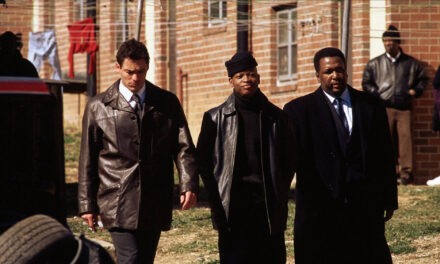FEMINIST MEDIA STUDIES
Commentary and Criticism: Call for Papers
18.6 Gender, Migration, and the Media
Contemporary Western mediascapes are overflowing with contradictory images of movement across borders. While goods and capital are cast as successfully and often innocently mobile in a world shaped by the triumphant discourse of globalization, human mass movement seems to encounter ever-increasing obstacles, from legal constraints to military prevention. In the context of what has become known as the recent “refugee crisis”, human migration fostered by warfare and socio-economic unbalances has become increasingly associated with powerlessness (a condition in which moving appears to be the only choice for survival) rather than with individual agency, which is regarded as the organizing principle for middle- and upper-class Western citizens relocating abroad.
While media coverage of “irregular crossings” in the Mediterranean has reached a fever pitch in Europe after the Arab Uprisings and since the outbreak of the Syrian civil war, the complex gendering of this mediatic narration has remained largely overlooked. In the contexts of generalized violence that migrants escape (and live through while migrating), women are typically subject to specific further abuse that is often structural and programmatic, and that tends to go underreported. On the other hand, Western news coverage is more likely to represent female (rather than male) refugees and migrants as hapless victims of a violence deemed endemic to their geographic, cultural, religious, and ethnic “origins”, thus fuelling racist political discourses on the “West and the rest”. As news coverage increasingly intersects literary and artistic production, mediatic (and mediated) discourses on migration thus appear more and more inescapably shaped by gender, both with regard to the authors/artists’ own gendered identities and in terms of their discursive choices in representing gendered experiences of border-crossing.
Who gains access to the means of cultural production? Who gets to tell their own stories or embarks on representing collective experiences? And how do the unequal relations of cultural production inform the Western casting of migrants as “victims” versus “willed individuals”, or “good” versus “dangerous” subjects? The patterns and dynamics of media and artistic production seen through the lenses of gender and race (as well as ethnicity and class) are crucial to a critical understanding of the contemporary Western discourse on migration. With this gender and migration-focused “Commentary and Criticism” issue, we hope to gather original contributions that tackle these important questions by looking for women’s voices, exploring how (and if) they are amplified, and who, in this case, hears them.
Contributions from a broad range of disciplines and theoretical approaches are encouraged, including those challenging the conventional borders among research fields and promoting dynamic interchange between critical reflection and creativity. Though we have privileged Europe and the Mediterranean in this narrative, we also welcome articles considering gender, media, and migration from other geographic spaces, comparative or otherwise. We are particularly interested in submissions from scholars beyond North America and the UK.
Submissions may address topics such as:
- Gender and migration in the media
- Gender and political/cultural citizenship
- The gendering of asylum seekers in Western immigration policies
- Gender in artistic and/or literary discourses on migration
- “Subjects” and “objects” in storytelling by or about women migrants
- Intra-European media coverage on migration
- Social media and refugee narratives
- Gendered migration routes
The “Commentary and Criticism” section of Feminist Media Studies aims to publish brief (~1000 words), timely responses to current issues in feminist media culture, for an international readership. Submissions may pose a provocation, describe work in progress, or propose areas for future study. We encourage all submissions to strategically mobilize critique to also offer a productive contribution to both feminist politics and media studies. Submissions must go beyond mere description in order to be considered for publication in “Commentary and Criticism”.
Please submit contributions by 18 June 2018, via email to both Mara Mattoscio (mara.mattoscio@gmail.com) and Megan C. MacDonald (mgn.macdonald@gmail.com). Questions and expressions of interest can also be addressed to Drs. Mattoscio and MacDonald in advance of the deadline. Please note that submissions for “Commentary and Criticism” will not be correctly processed if submitted through the main Feminist Media Studies site.
Submissions should follow the Feminist Media Studies style guide, which can be found at the following link: https://tandfonline.com/action/authorSubmission?journalCode=rfms&page=instructions
DEADLINE FOR SUBMISSIONS: 18 June, 2018





